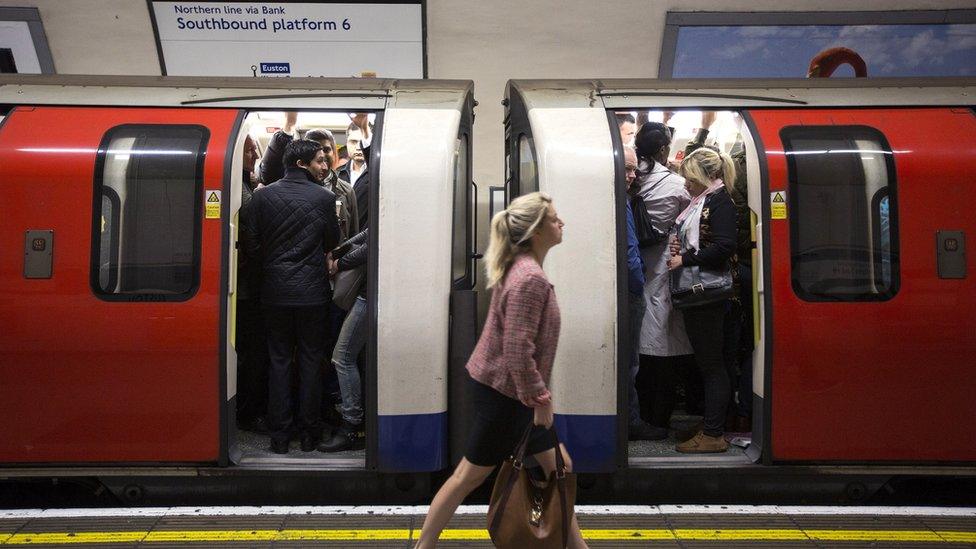Noise levels on Tube are louder than at a gig
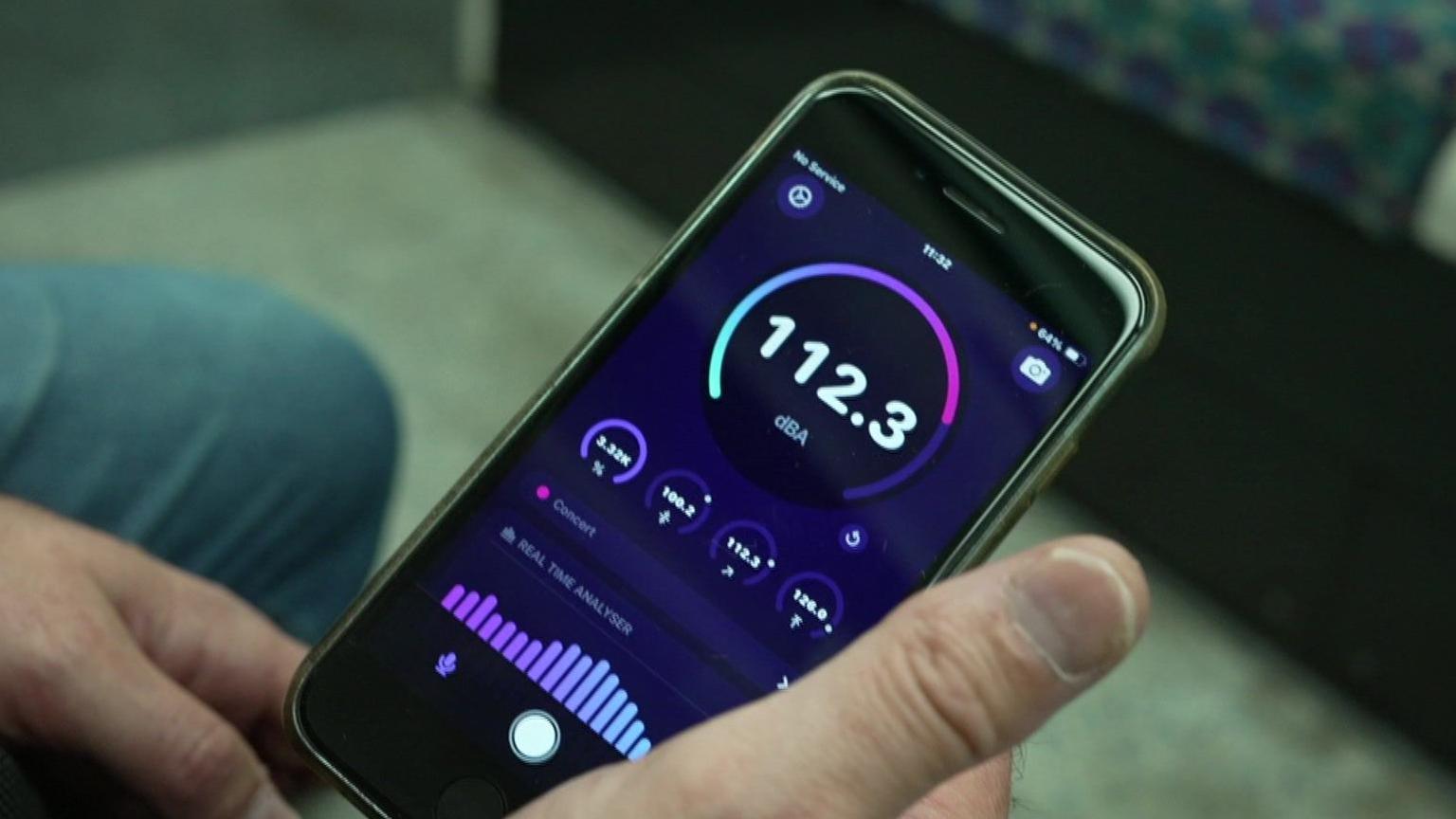
BBC London recorded noise levels on the Victoria line higher than a music concert but lower than a chainsaw
- Published
"Eeeeeeeeeeeeee."
There is a high-pitched shriek and as the Tube train hits its top speed, it gets louder and louder.
"Eeeeeeeeeeeeee."
We are between Finsbury Park and Highbury and Islington on the Victoria line. You can see commuters wince at the noise levels.
"Eeeeeeeeeeeeee."
It is the loudest section of track on what has become London's noisiest Tube line.
I'm measuring the noise levels on an app. It peaks at 112.3 decibels (dB). A music concert has a sound level of 110 dB. A chainsaw operates at 120 dB.
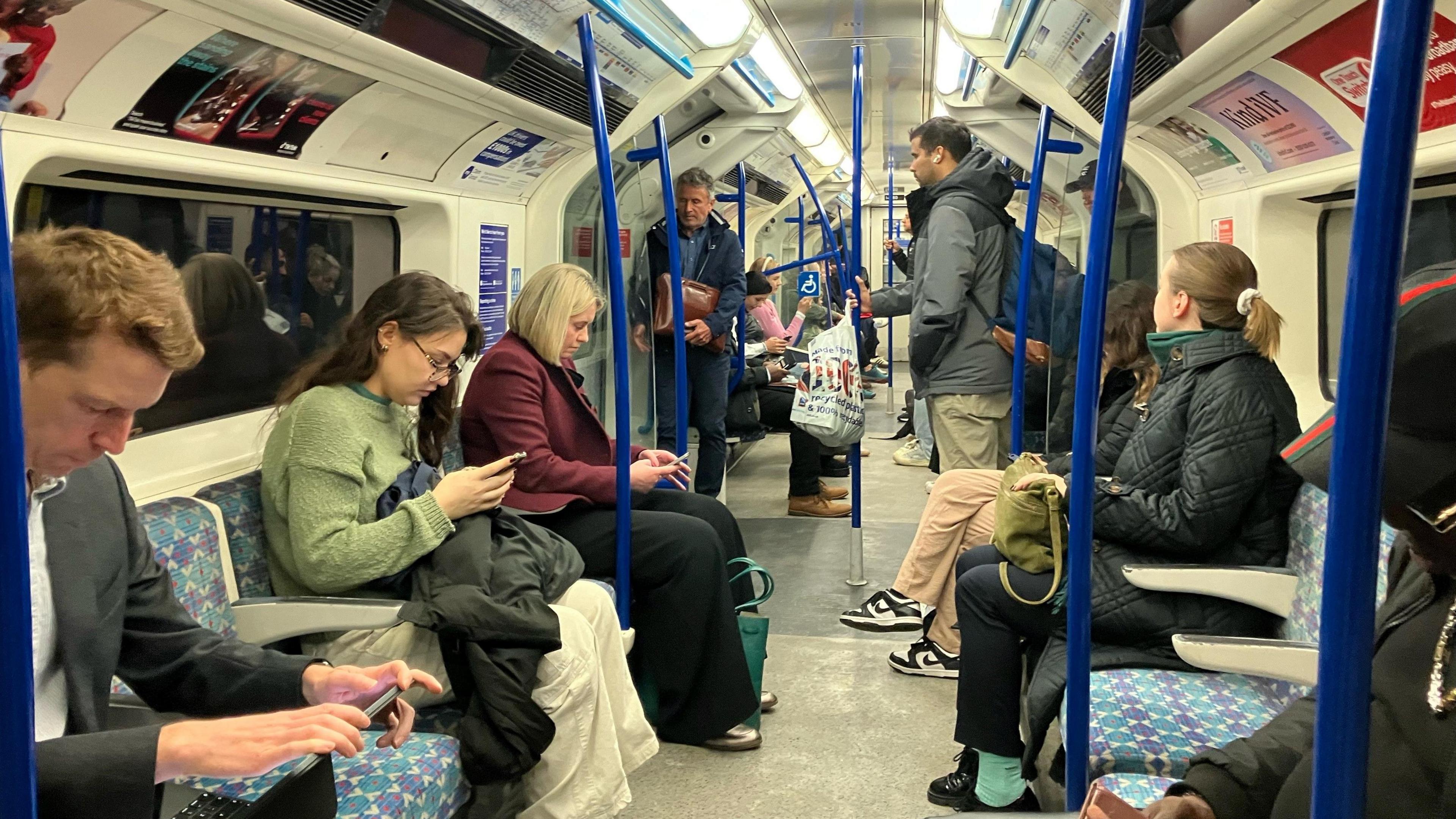
Unions operating on the London Underground say they are concerned that noise levels have never been so high
Noise higher than music concerts
According to Transport for London's (TfL) monitoring, the second noisiest bit of track on the Victoria line is between Vauxhall and Stockwell.
Finn Brennan, Aslef's union organiser on London Underground, says the noise levels are the worst they have ever been.
"London Underground have admitted that on the Victoria line it exceeds the legal limit that people should deal within a working shift.
"And they have had to issue ear defenders to drivers. But that's simply a sticking plaster. The underlying problem needs to be dealt with and at the base of the issue is a lack of maintenance."
The union added that some drivers are going at slower speeds over certain sections to protect their hearing. It blames a reduction in the rail grinding budget at TfL which reduces the noise and it wants it sorted out.
The RMT Union has already balloted its members for strike action.
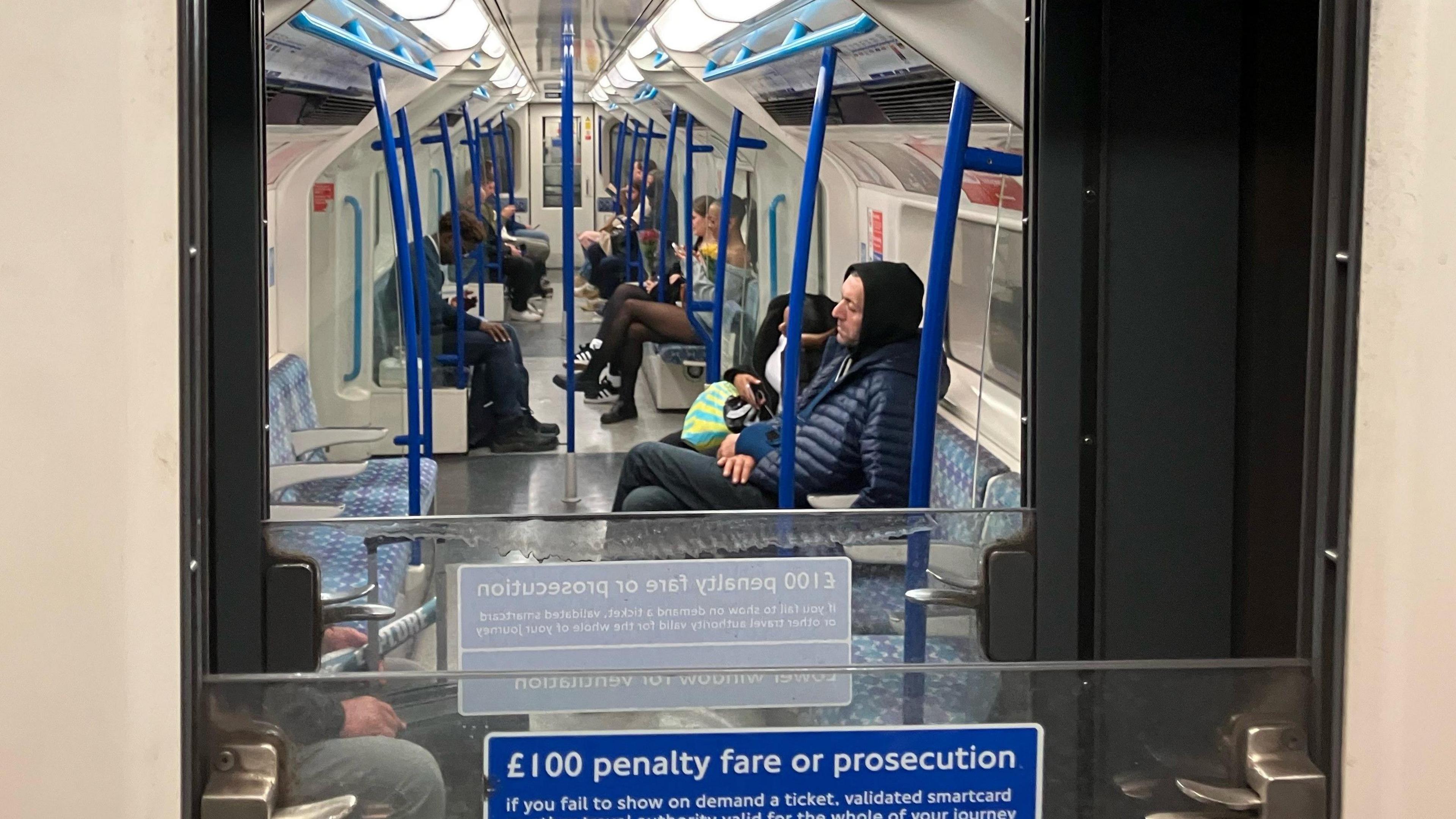
One of the solutions is grinding the rails to reduce the friction and the noise between the wheels and the track.
Zack Polanski, a Green on the London Assembly, says investment can make a difference.
"A lot of it is about money but it's also about priorities. Once you have decided that this is really the issue you're going to face, then actually you can get the money there.
"Sadiq Khan was really clear with the Conservative government that he needed more money to tackle it to do things like deep Tube conditioning.
"This is really, really important. I want to know what he's going to do now we have a Labour government. Is he going to put the same challenges on them that he rightly put on the Conservative administration?"
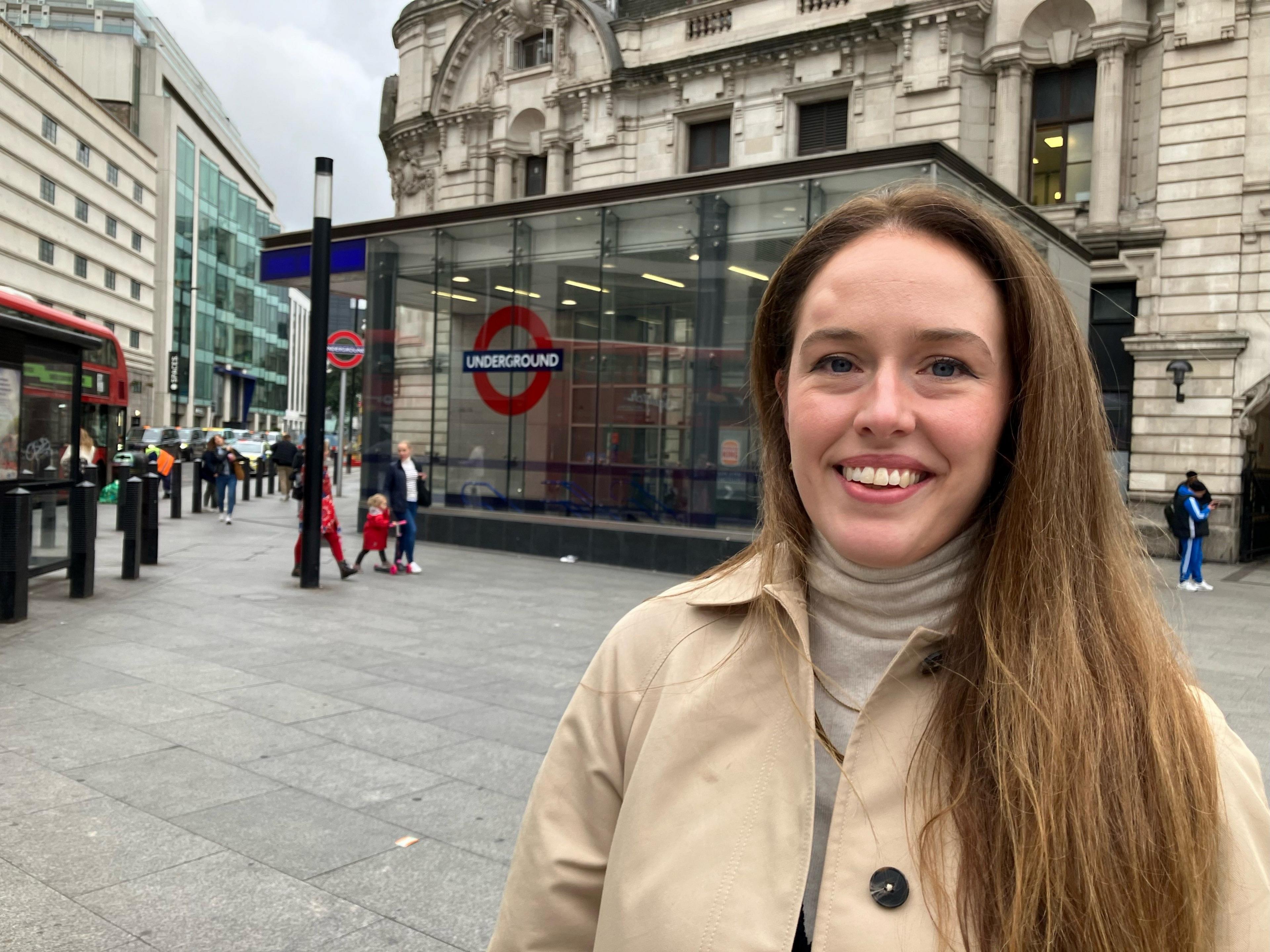
Franki Oliver, from Royal National Institute for Deaf People, says high sound levels can be really dangerous
Franki Oliver from the Royal National Institute for Deaf people (RNID) says 115 dB could be "painful and damage the hearing for commuters".
"If you start to experience pain when you are exposed to a loud sound that you really should leave that area immediately, because it can be really dangerous."
The RNID want to raise awareness of noise damage to hearing. The charity advise wearing noise cancelling headphones which can help while commuting, but to keep the volume as low as possible, to try to reduce exposure to loud noise across the day.
TfL said noise exposure for passengers does not reach the same levels that a train operator would be exposed to during their multi-hour shift.
It said it had been working to improve noise and vibration issues and has made a number of improvements, including removing insulated rail joints, which removes a source of noise, and improving the condition of the track.
A spokesperson said: "We regularly measure noise levels across the network, and recent results identified an increase in the level of noise exposure that Victoria line train operators are exposed to during the course of their shift.
“We have put plans in place to address this through further improvements to the infrastructure and as a short-term measure, we have provided ear protection to train operators to further protect their hearing and reduce train operators' exposure to noise levels below the occupational exposure levels set by the Health & Safety Executive."
It said it wanted to work with trade unions to fix this issue and avoid "unnecessary and disruptive industrial action that will impact Londoners".
Listen to the best of BBC Radio London on Sounds and follow BBC London on Facebook, external, X, external and Instagram, external. Send your story ideas to hello.bbclondon@bbc.co.uk, external
- Published18 October 2024
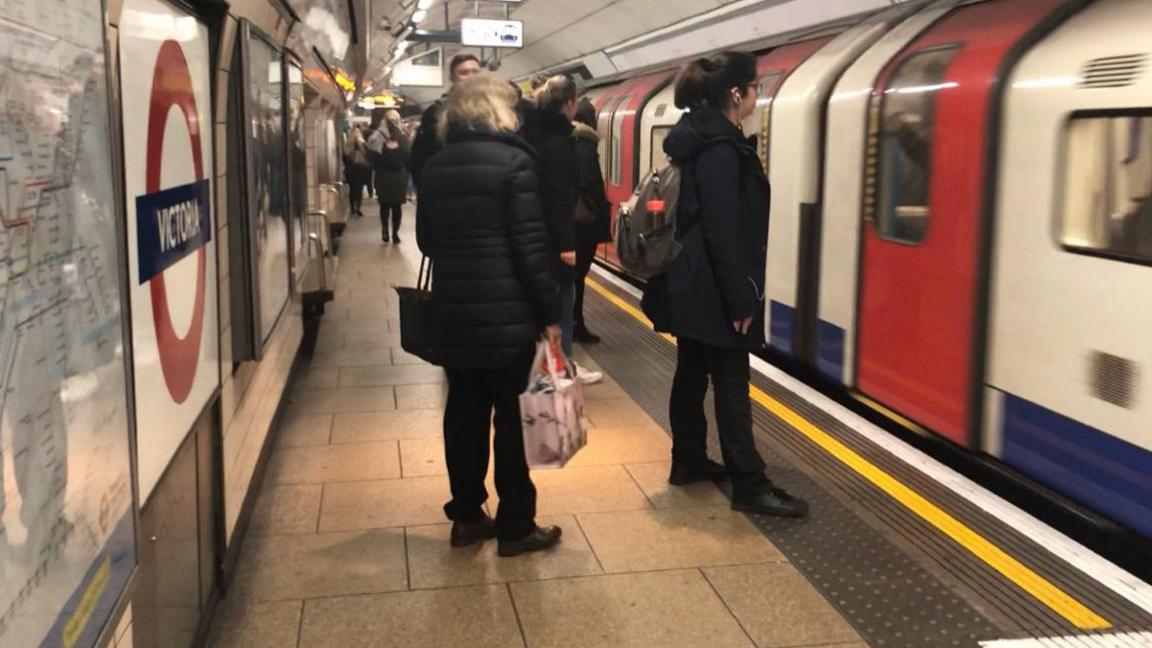
- Published5 April 2022

- Published29 January 2018
